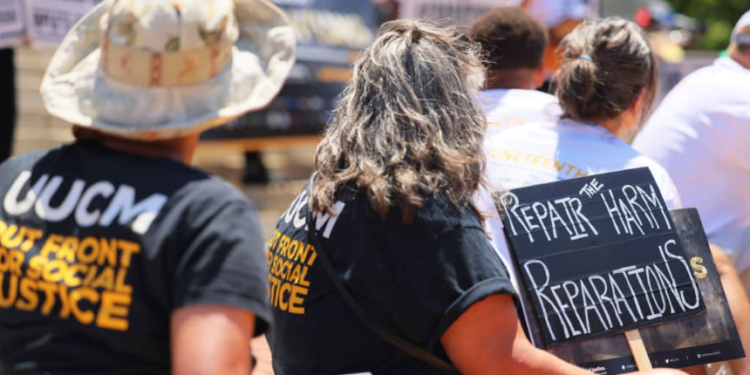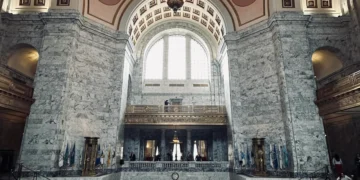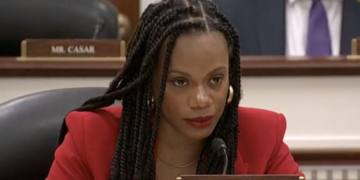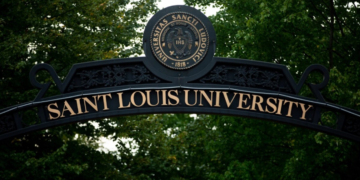Image Source: Pacific Legal Foundation
Jul 15, 2024 Story by: Editor
Lawmakers across the U.S. are advancing proposals to provide reparations to Black Americans for the legacy of slavery and racial discrimination in the country. These proposals range from direct cash payments and government grants to formal apologies and programs with race-based eligibility. However, because certain reparations proposals would advantage or disadvantage individuals based on race and ancestry, they face constitutional challenges. The Pacific Legal Foundation (PLF) is tracking these developments at state and local levels.
Updates from California’s Reparations Proposals
Earlier this year, the California Legislative Black Caucus introduced a series of bills to implement recommendations from the California Reparations Task Force. Among these was AB 2862, which sought to prioritize professional and occupational licenses based on race and whether individuals were descendants of slaves. However, the bill was quietly shelved after lawmakers raised concerns about how the government could determine applicants’ race and how the priority system would be implemented.
Several other bills related to reparations remain in committee and await their first hearing in the Assembly. Notably:
- SB 1403 is still in committee and scheduled for its first Assembly hearing. This bill would establish the California American Freedmen Affairs Agency to oversee the implementation of the Reparations Task Force’s recommendations.
- SB 1331, also awaiting its first Assembly hearing, would create the Fund for Reparations and Reparative Justice to finance state reparations policies.
- SB 1348 has been recommended by the Committee on Higher Education and re-referred to the Committee on Appropriations. This bill would designate institutions as Black-Serving Institutions if at least 10% of their student body is Black or African American and if they offer specific programs.
Additionally, ACA 7, which aimed to amend California’s Constitution to allow race-based discrimination, was pulled from the November ballot after missing the state Senate approval deadline. Although the state’s ban on racial preferences, as established by Prop 209, remains intact, advocates are expected to revive the effort in the future.
PLF has been actively opposing ACA 7, working alongside equality advocates such as Gail Heriot, the executive vice president of the Californians for Equal Rights Foundation and co-chair of the Prop 209 campaign.
Berkeley’s Reparations Considerations
The City of Berkeley released its Berkeley Unified School District Reparations Task Force recommendations in June. Among the recommendations were race-based financial payments to students, which violate California’s ban on racial preferences. To fund these proposals, the task force suggested a combination of private funding, state funds, and tax increases. Notably, it also recommended filing lawsuits against private entities tied to the legacy of slavery, such as those involved in redlining practices, with the expectation that settlements could provide significant revenue.
Chicago and Asheville Join the Movement
Following in California’s footsteps, Chicago has launched its own reparations task force, with a focus on addressing harms specific to Black Chicagoans. This effort, directed by an executive order from the city’s mayor, does not aim to address universal harms, but rather focuses on race-specific injustices.
In Asheville, North Carolina, reparations efforts encountered legal hurdles due to the 14th Amendment and the city’s anti-discrimination ordinance. Although all 39 of Asheville’s reparations recommendations were approved, some commissioners voiced concerns about the legality of the mandate. Others expressed frustration when legal experts suggested amendments to ensure compliance with constitutional standards. One commissioner even argued that the 14th Amendment “reshackle[d]” them.
At the last minute, Asheville’s Community Reparations Commission requested a 6-month extension for reparations implementation, despite having already passed 39 recommendations over four years. The City appears likely to grant only a 3-month extension, while the County has declined to consider any extension, though it will continue supporting the process if the City moves forward.
These developments reflect the complexities and ongoing debates surrounding reparations policies across the U.S., as lawmakers, advocates, and local governments wrestle with how best to address historic injustices while navigating legal and constitutional barriers. Source: Pacific Legal Foundation








![Cori Bush speaks outside the U.S. Capitol in Washington, D.C., following the removal of a pro-Palestinian tent encampment at George Washington University by police, during which demonstrators were arrested [File: Jose Luis Magana/AP].](https://blkpoliticsnow.com/wp-content/uploads/2024/10/rgerg-75x75.png)








